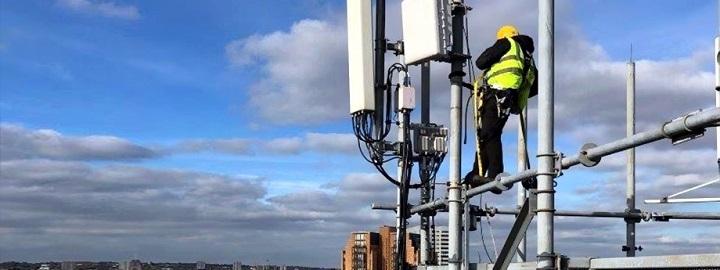
Chinese tech and telecoms giant Huawei is to be stripped out of Britain’s 5G phone networks by 2027, and UK mobile providers are being banned from buying new Huawei 5G equipment after 31 December 2020.
UK culture and digital secretary Oliver Dowden told the House of Commons of the decision, but also affirmed that older 2G, 3G and 4G Huawei equipment can remain until it is no longer required.
The news follows sanctions imposed by Washington, which claims Huawei poses a national security threat to the US - something the firm has always denied.
This means a complete U-turn in the UK government's reported decision in April 2019 to allow Huawei to supply equipment to help build the UK's 5G network infrastructure.
Mr Dowden said the move would delay the UK’s 5G rollout from between a year to three, and stated: "This has not been an easy decision, but it is the right one for the UK telecoms networks, for our national security and our economy, both now and indeed in the long run.”
He added that it could cost the phone companies £2bn which could be passed on in bills to consumers, but no compensation is expected to be paid to BT, Vodafone or Huawei as a result.
The UK government wishes for operators to “transition away” from purchasing new Huawei equipment for use in the full-fibre network, which Mr Dowden expects to fully happen within two years.
BBC News reported that Mr Dowden explained additional time was being provided for broadband to avoid the UK becoming dependent on Nokia as the single supplier of some equipment.
RELATED: Huawei celebrates 5G contracts while the US continues to pressure UK
In the UK’s last review of Huawei’s telecoms infrastructure role in January 2020, the government had decided to let the firm remain a supplier but introduced a cap on its market share.
In May however, the US introduced new sanctions designed to stop the manufacture of Huawei’s own microchips.

Security officials then stopped the firm from using microchips by American suppliers, as “they could no longer assure the security of its products if the company had to start sourcing chips from third-parties” according to BBC News.
The Guardian reported that Downing Street asked the National Cyber Security Centre - part of the spy agency GCHQ - to review Huawei’s security and said its equipment could not be considered safe if it had to rely on non-US components.
This suggests that other political considerations are likely to have influenced the government’s decision, including the UK's desire to strike a trade deal with the US, and growing tensions with China over its handling of the coronavirus outbreak and its treatment of Hong Kong.
RELATED: Huawei phone users: Google warns against installing its apps
A group of ‘Conservative rebels’ want Huawei completely eliminated by 2026 at the latest, including from existing 3G, 4G and 5G networks.
The Guardian reports that these rebels number about 60, and Mr Dowden is “expected to declare that the UK will be on an “irreversible path” to eliminating “high-risk vendors” such as Huawei in 5G by the time of the next general election in 2024, in attempt to placate some MPs.”
BT’s chief executive said it is impossible to entirely remove older Huawei equipment within 10 years and said it would be plausible to remove Huawei 5G in five.
Shortly before the announcement, Sky News revealed that Huawei’s UK chairman and the ex-chief executive of BP Lord Browne, would be formally stepping down from the firm in September before his term has finished. He has held the role for five years.
Huawei says it employs about 1,600 people in the UK and claims to be one of Britain's largest sources of investment from China.
It denies it has ever engaged or been asked to engage in spy behaviour on behalf of the Chinese state, with Beijing itself saying this decision “will be an acid test of the Sino-British relationship that had developed under David Cameron.”
Sources: BBC News, The Guardian, Sky News